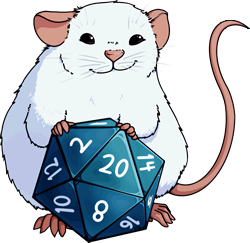Johnn Four over at Roleplaying Tips has a discussion about what it means to roleplay a character. He has a distinction between acting and representation as roleplaying.
Acting as roleplaying is just that…acting. At the table, the player acts like and essentially impersonates their character…often complete with accents or other ways of indicating that the player is “in-character.” The player acts the character at the table.
Roleplaying as representation means making decisions and taking actions that your character is both capable of doing and would do given his or her personality and knowledge. The player does not use his or her knowledge (e.g., meta-game knowledge) or do what they would do (personally or based on the meta-game knowledge that they may have). Instead, the character’s decisions and actions are based on the character’s personality, knowledge, and experiences and not the player’s. The player represents the character in the game.
The two are not, of course, mutually exclusive. A player can roleplay both via acting and representation. However, doing one does not necessarily mean the other is happening. A player can act as their character but not represent their character. They can continue to act the character at the table and make decisions (and use knowledge) as they, the player, rather than as the character. Similarly, a player can represent the character in the game and never once say anything “in-character” from the acting perspective.
If I had to choose one over the other, I would definitely go with representation as my preference. I’m much more interested in players actually representing their characters in the game than simply acting them at the table. Representation aligns better with the emergent story approach that I prefer to have in a FRG campaign. That isn’t to say that I don’t like to have “in-character” acting going on as well (I much prefer a player saying “ABC” as their character rather than saying, “My character says ABC”). However, I don’t consider acting to be a good substitute for representation.
On the other hand, roleplaying from a militant, unchanging representation approach can make it difficult to game with a group…especially if the party encounters something that the characters cannot agree upon. Representation has to be tempered by the fact that the game and, hopefully, the emerging story are a collaborative effort amongst all of the players. Having a character who will not fit in well with the rest of the group will not work from a representation and collaborative approach (that’s probably a topic for another post though).
That’s pretty much my opinion (my blog, my opinion, right?) about roleplaying and my preference regarding acting and representation. It also gives an idea of what I prefer/look for/expect from players in one of my campaigns.

I, too, like to create emergent stories when gaming. I do not find it necessary for all player characters to form a party of any kind; the characters may actively try to slay each other for all I care, as long as the players are co-operating.
Thanks for commenting Thanuir!
I agree in principle that character co-operation is not required for an emergent story. However, my preference and experience is that it is typically important for most players in an ongoing campaign. If characters can’t find some common ground, what reason do they have to continue to associate in the manner typical of PC groups? Additionally, a character whose representation is such that it either forces other players to “misrepresent” their own characters (i.e., continue to associate with a character they normally would not) or stop associating with that character is not fair to the other players nor do I find it generally conducive to an ongoing campaign. This is why I prefer a certain level of collaboration at both a character and player level in my campaigns (with, I hope, a healthy level of player character conflict as well).
I’d say that typical party structure pretty much requires character trust. (Your points are good.)
I’d further say that typical party structure is not necessary for an emergent story to be created and the play be enjoyable.
Here is a blog entry that dovetails pretty nicely with this distinction between representation and acting: The Fine Line: Roleplaying vs. Fantasizing. Although I don’t agree with it fully (e.g., “Fantasizers” do not always need a common thread amongst all their characters), the article captures an important point…a roleplaying game is a cooperative endeavor. Players, “fantasizers” in the article’s terms, that come in with characters that are set in stone or who cannot be influenced by anyone or anything else (e.g., the campaign setting) can often create difficulties at a gaming table focused on a more collaborative approach.